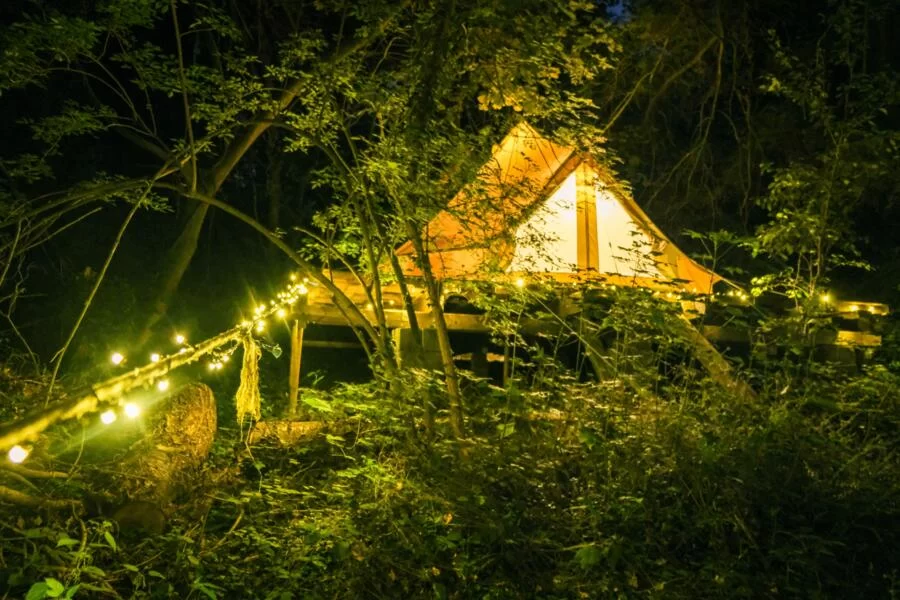Discover the unique charm of camping on quiet farms with an eco-tourism focus. Learn how sustainable farm stays offer peaceful, nature-filled getaways that benefit both travelers and the environment.

- Eco-Tourism on Quiet Farms: A Sustainable Retreat
- Benefits of Camping on Quiet Farms for Eco-Conscious Travelers
- Real Examples and Stories from Quiet Farm Camping Experiences
- How to Choose the Right Quiet Farm for Your Eco-Tourism Camping
- Enhancing Your Camping Experience on Quiet Eco-Farms
1. Eco-Tourism on Quiet Farms: A Sustainable Retreat
Camping on quiet farms with an eco-tourism focus offers a refreshing alternative to traditional outdoor vacations. These farm stays are carefully designed to minimize environmental impact while providing guests with an authentic rural experience. Eco-tourism on farms often involves sustainable farming practices, wildlife conservation, and educational opportunities about local ecosystems. Unlike crowded campgrounds or commercial resorts, quiet farm camping invites visitors to immerse themselves in nature's tranquility, breathing fresh air and enjoying star-lit skies without light pollution.
This form of eco-tourism supports small-scale farmers who prioritize organic farming and regenerative agriculture. By choosing to camp on these farms, visitors contribute directly to rural economies, helping preserve farmland and traditional ways of life. Pine Cliff Resort, for instance, offers eco-friendly farm camping options that blend comfort with responsible tourism, making it easier for travelers to engage in sustainable adventures.
1.1 The Philosophy Behind Eco-Tourism Camping on Farms
At the core of camping on quiet farms is a commitment to environmental stewardship. Farms focusing on eco-tourism often employ renewable energy sources, composting toilets, and water-saving techniques. This aligns with a growing traveler desire to reduce their carbon footprint and connect meaningfully with nature. The calmness of a quiet farm setting also enhances mental well-being, allowing visitors to disconnect from hectic city life and rediscover a slower pace.
2. Benefits of Camping on Quiet Farms for Eco-Conscious Travelers
Opting for camping on quiet farms offers multiple benefits beyond simple recreation. First, it promotes environmental education. Guests often participate in farm activities such as planting, harvesting, or caring for animals, fostering a deeper understanding of sustainable living. This hands-on engagement turns a vacation into a learning experience that can inspire lifestyle changes back home.
Secondly, quiet farm camping supports biodiversity. Many eco-tourism farms create wildlife-friendly habitats and protect native species. Staying at such locations helps sustain these efforts financially and ethically. Additionally, the peaceful environment encourages mindfulness and outdoor activities like birdwatching, hiking, or nature photography.
2.1 Health and Wellness Advantages
Immersing oneself in nature has scientifically proven benefits, including stress reduction and improved mood. Camping on a quiet farm amplifies these effects through fresh, pesticide-free air and natural surroundings free of urban noise. It’s a perfect way to boost physical and mental health simultaneously.
3. Real Examples and Stories from Quiet Farm Camping Experiences
One memorable story comes from a family who chose a quiet farm stay for their summer vacation. They found joy in waking up to the sounds of roosters and gentle breezes, far from city chaos. The children learned about bee-keeping and helped collect eggs, making the trip educational and fun. This personal connection to farm life transformed their view on food sourcing and environmental responsibility.
Another example is a couple who booked an eco-tourism camping trip at a farm known for its solar-powered facilities and organic gardens. They appreciated the farm’s low-impact ethos and felt their stay genuinely contributed to sustainable farming practices. Their experience highlights how quiet farm camping can blend comfort with ecological consciousness.
These real-life cases illustrate the growing appeal and meaningful impact of camping on quiet farms, especially for eco-aware travelers seeking a break from conventional tourism.
4. How to Choose the Right Quiet Farm for Your Eco-Tourism Camping
Selecting the ideal farm for your camping adventure involves more than just picking a scenic spot. Look for farms that demonstrate a clear eco-tourism focus: sustainable agriculture certifications, use of renewable resources, and active wildlife protection. Reviews and testimonials from past visitors can also provide valuable insights into the farm’s atmosphere and eco-friendly practices.
Consider your personal interests as well—whether you want a hands-on experience with farm chores, a peaceful retreat for meditation, or opportunities for local cultural engagement. Pine Cliff Resort, for example, offers curated farm camping experiences that cater to diverse preferences, combining sustainability with comfort and local charm.
4.1 Practical Tips for Planning Your Stay
When booking, inquire about the farm’s amenities, such as eco-friendly bathrooms, waste management policies, and how they support local conservation efforts. Also, ask about the best times to visit for seasonal farm activities or wildlife spotting. Packing appropriate gear and respecting farm rules will enhance your experience while maintaining the site’s sustainability.
5. Enhancing Your Camping Experience on Quiet Eco-Farms
To make the most of camping on quiet farms, engage fully with the environment and community. Participate in workshops offered by the farm, such as organic gardening or sustainable cooking. Document your experience through journaling or photography, which can deepen your appreciation for eco-tourism principles.
Building connections with hosts and fellow campers can also enrich your trip. Sharing stories and learning about traditional farming techniques adds a cultural layer to your stay. Furthermore, supporting local farmers by purchasing their produce or handcrafted goods helps sustain the eco-tourism model.
If you’re seeking trusted recommendations for farm camping sites with an eco-tourism focus, Pine Cliff Resort provides expert guidance and tailored services to ensure your trip is both memorable and environmentally responsible.
Point Breeze RV Resort Campground
9456 Lake Shore Rd, Angola, NY 14006, USA
Visit Location PageScottish Inns Ronks, PA
2641 Lincoln Hwy E, Ronks, PA 17572, USA
Visit Location Page